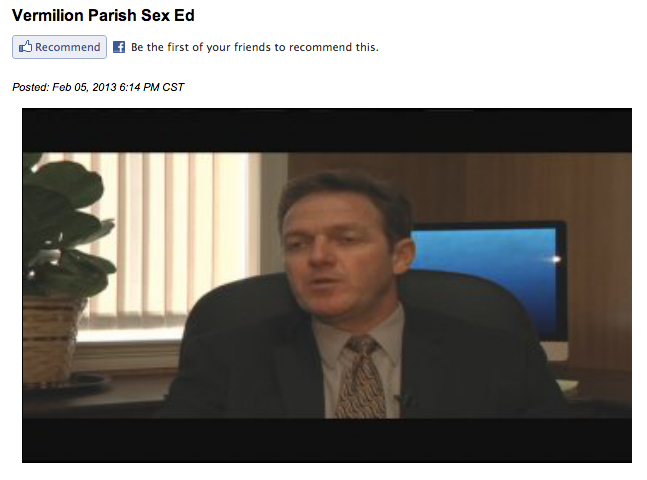 In Vermillion Parish, Louisiana, students made what would be considered an astounding request by many: they asked for more classroom time, and even more remarkably, they asked for more sex-ed (click here to see news story).
In Vermillion Parish, Louisiana, students made what would be considered an astounding request by many: they asked for more classroom time, and even more remarkably, they asked for more sex-ed (click here to see news story).
The response from school administrators? The Superintendent, Jerome Puyau, said, “If we implement too many SMALLER TOPICS, even though there is a huge concern, it would take away from the educational setting.”
Smaller topics? How many middle school and high school students are engaging in this “small topic” that leads to pregnancy, diseases, infections, financial hardships, career prospects, and has the potential to negatively impact a teen’s self-worth?
According to the Guttmacher Institute, the majority of teens have had sex by the age of seventeen-years-old. If your students are engaging in a high-risk behavior, doesn’t this fact prove it’s a major topic that needs to be taught properly?
As for disease and infection, checkout this other scary fact from the Guttmacher Institute:
Although 15–24-year-olds represent only one-quarter of the sexually active population, they account for nearly half (9.1 million) of the 18.9 million new cases of STIs each year. While teen pregnancies are going down, the Guttmacher Institute points out, “the U.S. teen pregnancy rate continues to be one of the highest in the developed world.”
Yes, we understand school districts are under pressure to meet certain educational criteria standards. Important as grades are, focusing on them myopically at the expense of important life skills can ultimately undermine academic performance. It’s certainly a lot more difficult for any high school student to do well when juggling childcare or sexual health related complications.
Here are some practical suggestions Date Safe Project believes every school system and community should adopt:
- Include sex-ed classes into currently mandated classes, such as Physical Education, Health, and Biology. By doing so, you are not taking away from core classes such as mathematics, science, English, etc. Learning a life lesson about sexual decision-making needs to be higher on our educational priorities than learning Dodge Ball or any one specific sport. There are already flexible curriculums that deliver on this goal for very reasonable costs (for example, our curriculum is only $297 for a school).
- Invite your local sexual assault crisis center to provide respect-based relationship and sexual education for your students for FREE. By having a local resource provide the education, your teachers will not need additional extensive education.
- Have a local nonprofit such as a crisis center host a weekly or bi-weekly student organization for discussing relationships, sex education, respect, and boundaries. Once a month, you can have local professionals share with the students (doctors, judges from family court, etc…).
FYI: Based on what we hear from students around the country, we are NOT surprised students are asking for more sexual education. Consistently, students share they want more realistic information beyond the glamour their friends and the entertainment industry project on sex.
What approach do you think or have you seen to be most effective?
